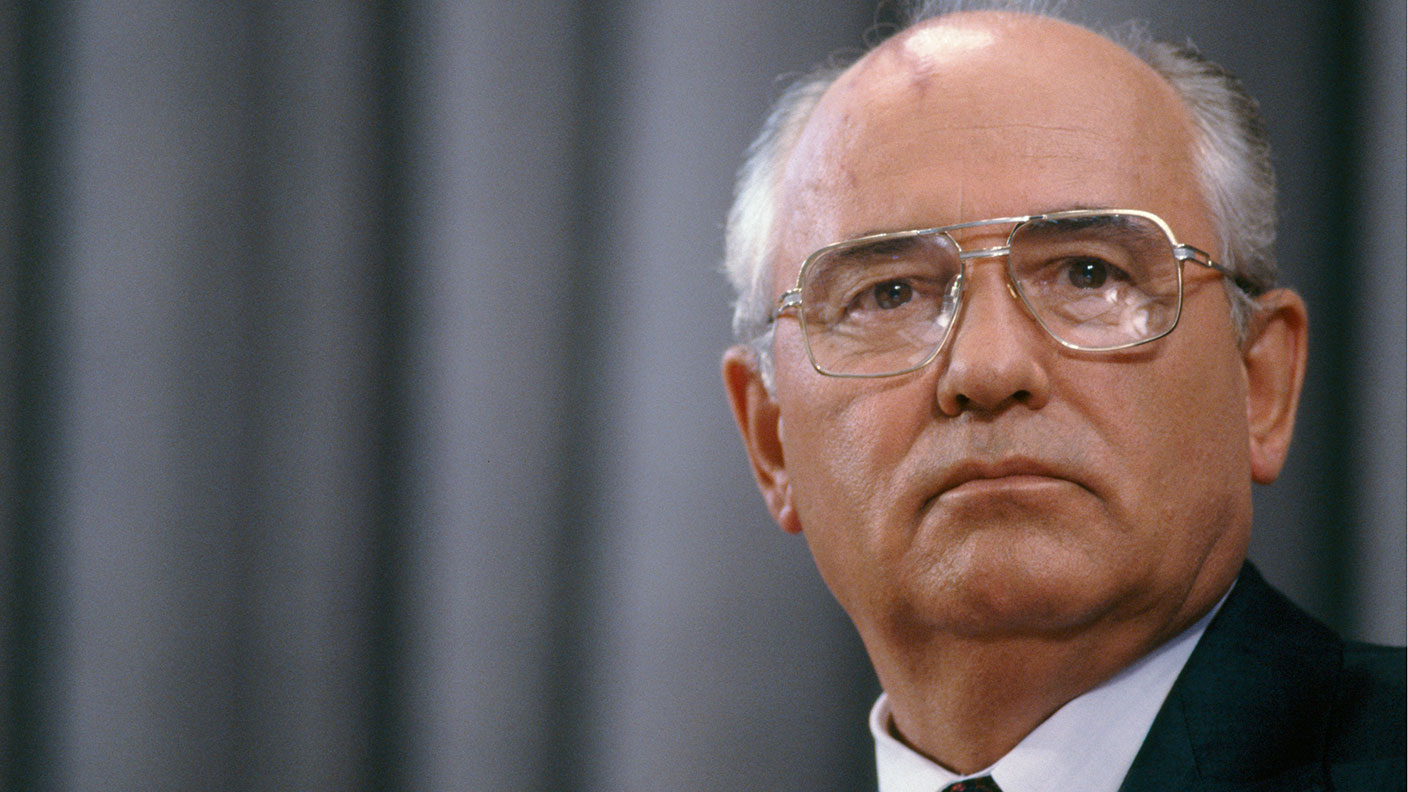21 August 1991: coup to oust Soviet leader Mikhail Gorbachev fails
Communist hardliners arrested Soviet leader Mikhail Gorbachev while he was on holiday, hastening the end of the USSR, on this day in 1991.


Get the latest financial news, insights and expert analysis from our award-winning MoneyWeek team, to help you understand what really matters when it comes to your finances.
You are now subscribed
Your newsletter sign-up was successful
Want to add more newsletters?

Twice daily
MoneyWeek
Get the latest financial news, insights and expert analysis from our award-winning MoneyWeek team, to help you understand what really matters when it comes to your finances.

Four times a week
Look After My Bills
Sign up to our free money-saving newsletter, filled with the latest news and expert advice to help you find the best tips and deals for managing your bills. Start saving today!
The Soviet Union's communist economic system was generally a failure. By the early 1980s, even exaggerated official data put the USSR's GDP per head at half that of Western Europe. There were long waiting lists for consumer goods, and even food and clothing shortages. So in 1985, new Soviet leader Mikhail Gorbachev instigated limited economic and political reforms – Perestroika and Glasnost – to boost growth and ease public discontent.
However, within five years he was trapped between popular demands for the end of communism and hardliners who opposed all change. Gorbachev reluctantly continued reforms, trying to encourage the USSR's survival as a looser federation, authorising limited crackdowns in Georgia and Azerbaijan. This satisfied no one. And on 19 August 1991, the hardliners attempted a coup. While Gorbachev was on holiday,senior officials arrested him at his villa.
They declared a state of emergency, sending troops into Moscow's streets. But the coup unravelled when protesters blockaded the main government building, aiming to protect the president, Boris Yeltsin. Facing possible bloodshed, and themselves divided, the army refused to fire on protesters. The conspirators resigned and released Gorbachev on 21 August.
MoneyWeek
Subscribe to MoneyWeek today and get your first six magazine issues absolutely FREE

Sign up to Money Morning
Don't miss the latest investment and personal finances news, market analysis, plus money-saving tips with our free twice-daily newsletter
Don't miss the latest investment and personal finances news, market analysis, plus money-saving tips with our free twice-daily newsletter
However, the coup destroyed both his authority and that of the remaining hardliners, amid lingering suspicions that he had tacitly encouraged the coup as a way to get rid of Yeltsin. He resigned as Communist Party Secretary days later and the party was abolished on 29 August. He finally resigned as Soviet president on Christmas Day 1991, bringing the Soviet Union to an end the following day.
Get the latest financial news, insights and expert analysis from our award-winning MoneyWeek team, to help you understand what really matters when it comes to your finances.

-
 UK interest rates live: rates held at 3.75%
UK interest rates live: rates held at 3.75%The Bank of England’s Monetary Policy Committee (MPC) met today to decide UK interest rates, and voted to hold rates at their current level
-
 MoneyWeek Talks: The funds to choose in 2026
MoneyWeek Talks: The funds to choose in 2026Podcast Fidelity's Tom Stevenson reveals his top three funds for 2026 for your ISA or self-invested personal pension
-
 31 August 1957: the Federation of Malaya declares independence from the UK
31 August 1957: the Federation of Malaya declares independence from the UKFeatures On this day in 1957, after ten years of preparation, the Federation of Malaya became an independent nation.
-
 13 April 1960: the first satellite navigation system is launched
13 April 1960: the first satellite navigation system is launchedFeatures On this day in 1960, Nasa sent the Transit 1B satellite into orbit to provide positioning for the US Navy’s fleet of Polaris ballistic missile submarines.
-
 9 April 1838: National Gallery opens in Trafalgar Square
9 April 1838: National Gallery opens in Trafalgar SquareFeatures On this day in 1838, William Wilkins’ new National Gallery building in Trafalgar Square opened to the public.
-
3 March 1962: British Antarctic Territory is created
Features On this day in 1962, Britain formed the British Antarctic Territory administered from the Falkland Islands.
-
10 March 2000: the dotcom bubble peaks
Features Tech mania fanned by the dawning of the internet age inflated the dotcom bubble to maximum extent, on this day in 2000.
-
9 March 1776: Adam Smith publishes 'The Wealth of Nations'
Features On this day in 1776, Adam Smith, the “father of modern economics”, published his hugely influential book The Wealth of Nations.
-
 8 March 1817: the New York Stock Exchange is formed
8 March 1817: the New York Stock Exchange is formedFeatures On this day in 1817, a group of brokers moved out of a New York coffee house to form what would become the biggest stock exchange in the world.
-
7 March 1969: Queen Elizabeth II officially opens the Victoria Line
Features On this day in 1969, Queen Elizabeth II took only her second trip on the tube to officially open the underground’s newest line – the Victoria Line.